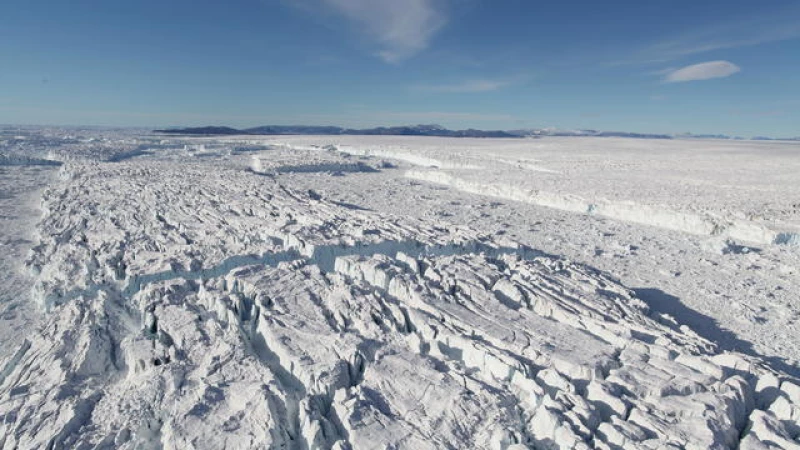Greenland's Ice Sheet Melting Faster Than Previously Estimated
According to a study released on Wednesday, Greenland's ice sheet is melting at a faster rate than scientists had previously estimated.
Using satellite imagery, researchers have found that since 1985, Greenland's ice sheet has lost approximately 5,091 square kilometers of ice. This includes the melting at the edges of the ice sheets, known as calving, which measures the ice breaking off at the terminus of a glacier.
The study revealed that Greenland's ice sheet loses about 193 square kilometers of ice per year. However, the researchers also qualified the extent of calving, which increased the scope of ice mass lost.
By combining 236,328 observations of glacier terminus positions from various public data sets, the scientists were able to capture monthly ice melt. Their measurements showed that between 1985 and 2022, almost every glacier in Greenland experienced some level of loss.
Seasonal Variability of Glaciers Could Predict Long-Term Ice Loss
Scientists have discovered that the seasonal variability of glaciers can serve as a predictor for long-term loss of ice mass. The study revealed significant differences in melting rates between summer and winter. During the summer, the warming of the ocean and influxes of meltwater accelerate ice melting and can impact the thickness of glacial ice. In contrast, during the winter months, a mixture of sea ice and icebergs can modify the rate of glacial melt.
Although the retreat of glaciers does not appear to contribute substantially to sea level rise, the loss of ice may affect ocean circulation patterns and the distribution of heat energy across the planet, according to the researchers involved in the study. It is worth noting that the scientists measured glacier margins that were already underwater.
Previous studies have shown that the Greenland ice sheet is the second-largest contributor to rising sea levels. In fact, a single sheet melting was responsible for over 17% of the sea level rise recorded between 2006 and 2018.
As global temperatures continue to increase, glaciers and ice sheets are melting at a faster rate than they can accumulate new snow and ice. This is particularly evident in the oceans, which absorb 90% of the planet's warming. The combination of warmer air and warmer ocean water intensifies the loss of ice.







